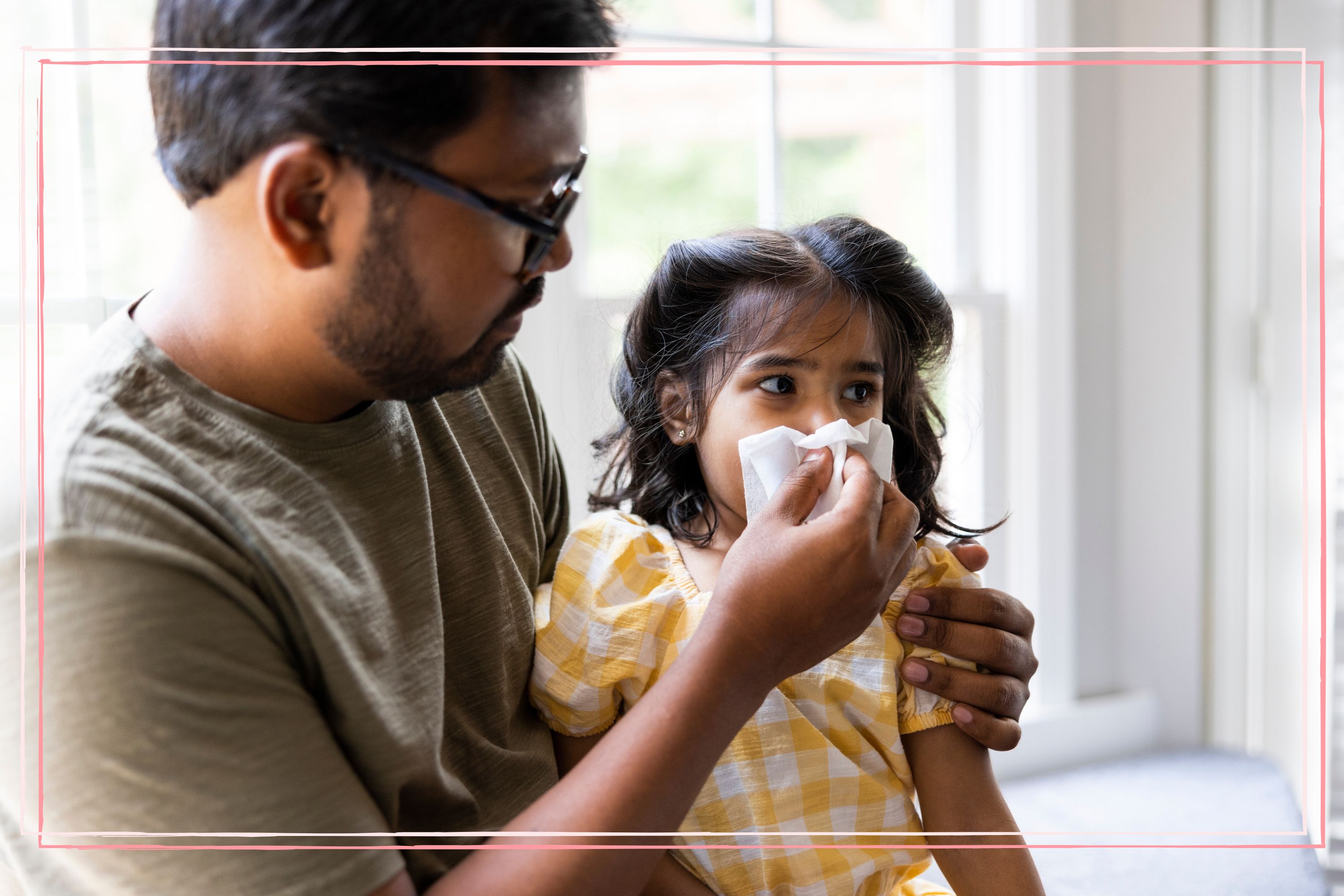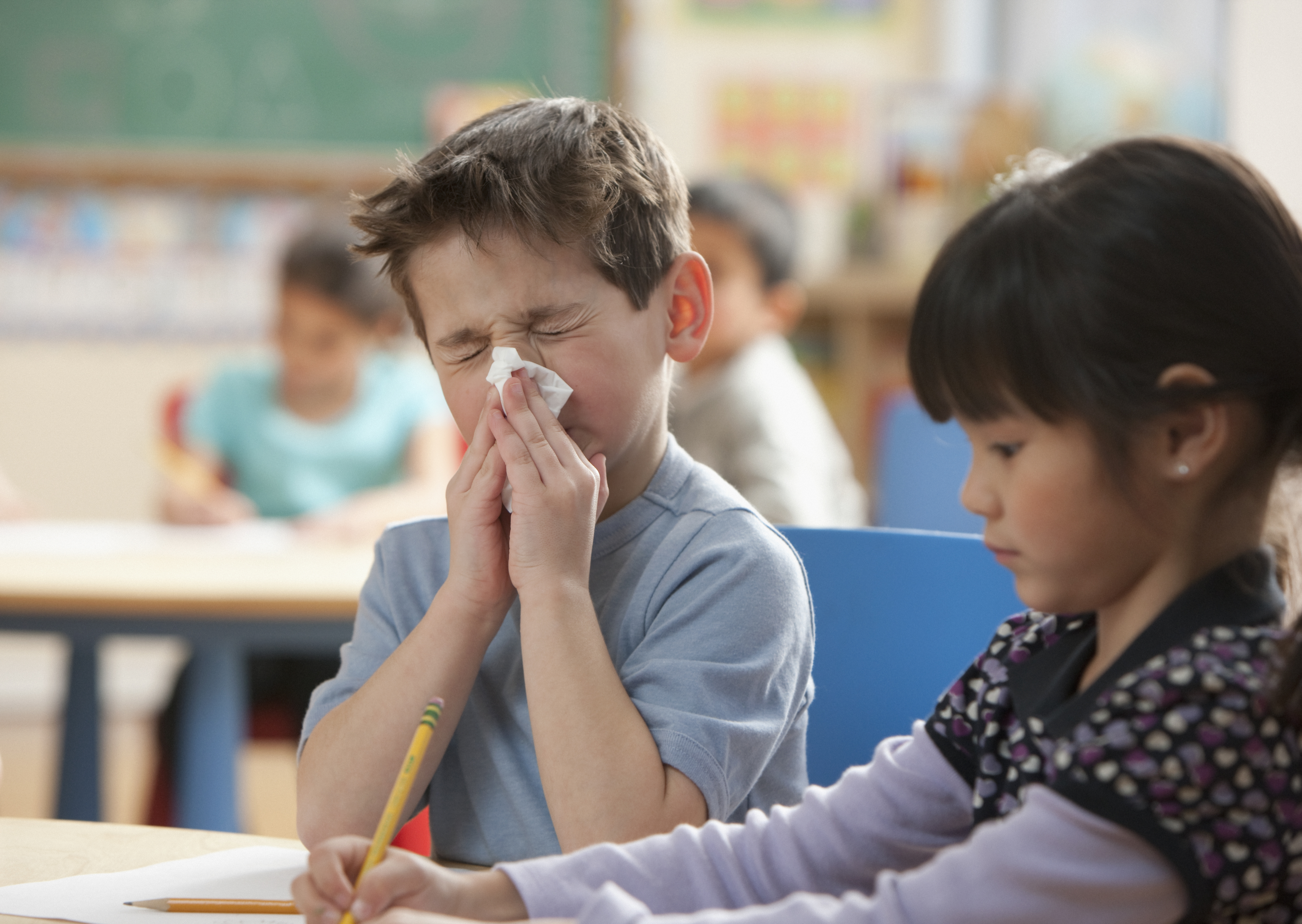Should I send my child to school with a cold? Latest government guidance explained
If your kid has picked up a sniffle, you might be wondering 'Should I send my child to school with a cold?' This is the advice from the NHS, the government, a pharmacist and a fellow parent...


If your kid has picked up a sniffle or a cough, you might be wondering 'Should I send my child to school with a cold?' We've done the research and found the official advice and definitive answer to this common conundrum for parents.
Sniffles and snotty noses are just another part of life when you have a child at daycare, nursery or school, leaving many of us searching for cold remedies and cough remedies to see us through the week. But while it's easy to decide to keep your kids home when they have symptoms of flu or are feeling really poorly, colds just aren't so simple. Do you send them off with a packet of tissues in their bag, or grant them a duvet day so they have time to recover?
This year the UK government has offered new guidance for parents on when they should send their children to school, in a bid to tackle absenteeism. It comes as Department for Education figures show 22.3% of pupils were "persistently absent" during the 2022-2023 academic year, a figure that has risen since the pandemic - before which a much lower 10.9% were persistently absent.
Here, we review official government guidance on sending children to school with a cold and clinical pharmacist and scientific advisor to Alive! Supplements, Mike Wakeman, and GoodToKnow's Family Editor, Stephanie Lowe, give their advice on when you should - and shouldn’t - send your child to school with a cold.
Should I send my child to school with a cold?
Yes, you can send your child to school with a cold. The NHS, our expert pharmacist and government guidelines all state that it is fine to send your child to school or nursery with a minor cough or common cold if they are otherwise well and do not have a high temperature.
"It is fine to send your child to school with minor cough or common cold symptoms, but if they have a fever, keep them off school until the fever goes," Mike explains.
Advice from the NHS on fevers in children states that if your child has a fever or is giving a reading outside of the healthy temperature range for children (about 38°C) then they should definitely stay at home.
Parenting advice, hot topics, best buys and family finance tips delivered straight to your inbox.
However, you will also want to consider whether your child feels well enough to work. As Stephanie says, "As a parent, you know your child. You know if they're not well and not themselves. I think we need to change the narrative around this dated 'pushing through it' culture. When you're ill the best thing to do is rest."
She advises, "Snotty nose but still running around; I'd call ahead to the school to let them know but still send my child in. Snotty nose, temperature, lethargic and not at all themselves - I'd keep them off school or nursery. You're the parent, you know your child."

If your child is well enough to go into school, encourage them to sneeze into a tissue, throw it away immediately and wash their hands regularly, to prevent the spread of germs. The UK government's e-bug resources can help you to explain and discuss hygiene habits - and why they are important - to your child or teenager.
If your child isn't well enough to attend, you should call the school's administrative office on the day to let them know that they won't be coming in. The school can then register this as an official absence due to sickness.
Government guidance on attending school with a cold
The NHS advice in the ‘Is my child too ill for school?’ guidance states: "It's fine to send your child to school with a minor cough or common cold. But if they have a high temperature, keep them off school until it goes." They also advise, "If you do keep your child at home, it's important to phone the school or nursery on the first day. Let them know that your child won't be in and give them the reason."
The UK government has launched a campaign titled "Moments matter, attendance counts" in a bid to encourage parents to send their children to school if they have minor illnesses by stressing the importance of attendance for attainment, wellbeing, and development.
The advice includes a recent letter from the Chief Medical Officer, Professor Chris Whitty, which outlines best practice when it comes to attendance and illness.
On coughs and colds, the letter reads, "It is usually appropriate for parents and carers to send their children to school with mild respiratory illnesses. This would include general cold symptoms: a minor cough, runny nose or sore throat. However, children should not be sent to school if they have a temperature of 38°C or above."
Can I send my child to nursery with a cold?
Children can go to nursery with a cold, just as they can go to school with one.
Nurseries wouldn't necessarily expect your child to stay at home if they're just a bit bunged up. However, if they also have a fever, rash or any other symptoms of a contagious disease (such as whooping cough or roseola) in addition to their cold symptoms, it's best to keep your child at home and make an appointment to see your doctor as soon as possible.
If your child has a contagious illness that it more serious than a common cold, your nursery or daycare may have specific rules or protocols regarding when children are allowed to return, so you should check with them first before taking your child back in.
Can my child go to school with a sore throat?
Children can go to school with a sore throat and/or a cough. Most sore throats are the result of a minor virus that clears up on its own, but it's important to look out for other symptoms that could indicate a bigger issue.
Look out for a fever, red and swollen tonsils, painful or swollen neck glands. Along with a sore throat, these are symptoms of strep throat. It's a very contagious illness and most cases tend to occur in school-age kids and teenagers.
Most cases of strep throat need antibiotics, so it's important to consult your child's GP if they have any of these signs.
When to keep your child home from school
Coughs and colds are one thing but there are some illnesses where it’s important to keep your child off school - for their health and other children's.
If your child has any of these conditions, they should stay at home and you should discuss with your doctor and your child's school regarding when they will be allowed to return. These condition include (but are not limited to):
- Chickenpox
- Impetigo
- Flu
- Food poisoning (diarrhoea and vomiting)
- Measles
- Meningitis
- Mumps
- Rubella (German measles)
- Scabies
- Scarlet Fever
- Tonsillitis and other related throat infections)
- Whooping cough
- Ringworm
- Salmonella
- E.Coli
- Gastroenteritis (diarrhoea and vomiting)
- Rotavirus (diarrhoea and vomiting)
- Infections spread through the faeces, such as: Giardia, Bacillary dysentery, Campylobacter, Cryptosporidiosis.
- Hepatitis A
The UK Health Security Agency says, "If your child is up to date with their NHS vaccination schedule, they will already be protected against diseases like whooping cough, measles, mumps and rubella throughout their school career, as most provide lifelong immunity.
"Unvaccinated children are at higher risk of contracting these illnesses and having more severe symptoms than vaccinated classmates. They can also spread diseases to others. Check your child’s red book or contact your GP surgery to ensure they are up to date on all vaccines."
If your child is technically well enough to go into school but has a condition that they can spread to others - like head lice or a cold sore - they may not have to stay at home. Discuss with your child's school first and then let their teacher know if you are sending your child in so they can inform other parents and carers.
This article was originally published on January 9th 2024 and was updated on May 13th 2024 to ensure that all information is up to date and reflects current advice and official guidelines on the topic.
The information on GoodTo.com does not constitute medical or other health advice or diagnosis and should not be used as such. Although GoodtoKnow consults a range of medical experts to create and fact-check content, this information is for general purposes only and does not take the place of medical advice. Always seek the guidance of a qualified health professional or seek urgent medical attention if needed.

Ellie is GoodtoKnow’s Family News Editor and covers all the latest trends in the parenting world - from relationship advice and baby names to wellbeing and self-care ideas for busy mums. Ellie is also an NCTJ-qualified journalist and has a distinction in MA Magazine Journalism from Nottingham Trent University and a first-class degree in Journalism from Cardiff University. Previously, Ellie has worked with BBC Good Food, The Big Issue, and the Nottingham Post, as well as freelancing as an arts and entertainment writer alongside her studies. When she’s not got her nose in a book, you’ll probably find Ellie jogging around her local park, indulging in an insta-worthy restaurant, or watching Netflix’s newest true crime documentary.